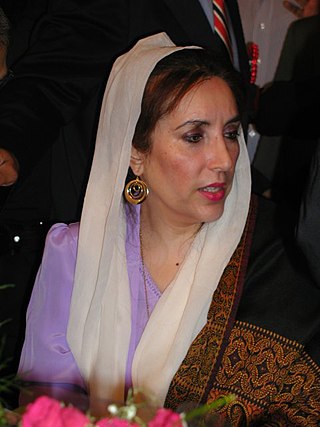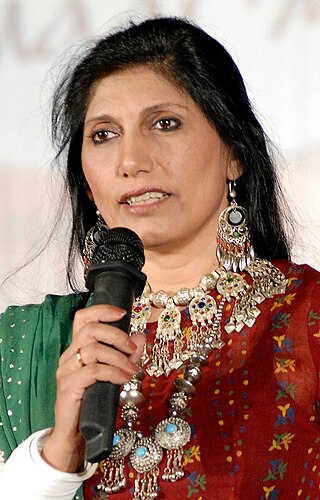Related Research Articles
In United States labor law, a hostile work environment exists when one's behavior within a workplace creates an environment that is difficult or uncomfortable for another person to work in, due to illegal discrimination. However, a working environment that is unpleasant and frightening for the victim due to sexual advances that have been denied by the victim, is what constitutes hostile work environment sexual harassment. Common complaints in sexual harassment lawsuits include fondling, suggestive remarks, sexually-suggestive photos displayed in the workplace, use of sexual language, or off-color jokes. Small matters, annoyances, and isolated incidents are usually not considered to be statutory violations of the discrimination laws. For a violation to impose liability, the conduct must create a work environment that would be intimidating, hostile, or offensive to a reasonable person. An employer can be held liable for failing to prevent these workplace conditions, unless it can prove that it attempted to prevent the harassment and that the employee failed to take advantage of existing harassment counter-measures or tools provided by the employer.

Sexual harassment is a type of harassment involving the use of explicit or implicit sexual overtones, including the unwelcome and inappropriate promises of rewards in exchange for sexual favors. Sexual harassment can either be physical or verbal, maybe even both. Sexual harassment includes a range of actions from verbal transgressions to sexual abuse or assault. Harassment can occur in many different social settings such as the workplace, the home, school, or religious institutions. Harassers or victims may be of any sex or gender.

Women in Pakistan make up 48.76% of the population according to the 2017 census of Pakistan. Women in Pakistan have played an important role throughout Pakistan's history and they are allowed to vote in elections since 1956. In Pakistan, women have held high offices including that of the Prime Minister, Speaker of the National Assembly, Leader of the Opposition, as well as federal ministers, judges, and serving commissioned posts in the armed forces. Lieutenant General Nigar Johar, attaining the highest military post for a woman. Benazir Bhutto was sworn in as the first woman Prime Minister of Pakistan on 2 December 1988.

Lesbian, gay, bisexual, and transgender (LGBT) people in Pakistan face legal and social difficulties compared to non-LGBT persons. Pakistani law prescribes criminal penalties for same-sex sexual acts. The Pakistani Penal Code of 1860, originally developed under the British Raj, criminalises sodomy with possible penalties of prison sentences from two years to a life sentence and fines. Despite its illegality, homosexual acts are only occasionally prosecuted by authorities in Pakistan. Other morality and public order provisions in the Penal Code are however used to target LGBT Pakistanis.
The Women's Protection Bill which was passed by the National Assembly of Pakistan on 15 November 2006 is an attempt to amend the heavily criticised 1979 Hudood Ordinance laws which govern the punishment for rape and adultery in Pakistan. Critics of the Hudood Ordinance alleged that it made it exceptionally difficult and dangerous to prove an allegation of rape, and thousands of women had been imprisoned as a result of the bill. The bill returned a number of offences from the Zina Ordinance to the Pakistan Penal Code, where they had been before 1979, and created an entirely new set of procedures governing the prosecution of the offences of adultery and fornication. Whipping and amputation were removed as punishments. The law meant women would not be jailed if they were unable to prove rape and their complaints of rape would not be seen as confession of adultery.

Fouzia Saeed is a Pakistani social activist, gender expert, trainer/facilitator, development manager, folk culture promoter, television commentator, and author.

LGBT employment discrimination in the United States is illegal under Title VII of the Civil Rights Act of 1964; employment discrimination on the basis of sexual orientation or gender identity is encompassed by the law's prohibition of employment discrimination on the basis of sex. Prior to the landmark cases Bostock v. Clayton County and R.G. & G.R. Harris Funeral Homes Inc. v. Equal Employment Opportunity Commission (2020), employment protections for LGBT people were patchwork; several states and localities explicitly prohibit harassment and bias in employment decisions on the basis of sexual orientation and/or gender identity, although some only cover public employees. Prior to the Bostock decision, the Equal Employment Opportunity Commission (EEOC) interpreted Title VII to cover LGBT employees; the EEOC determined that transgender employees were protected under Title VII in 2012, and extended the protection to encompass sexual orientation in 2015.

The Sexual Harassment of Women at Workplace Act, 2013 is a legislative act in India that seeks to protect women from sexual harassment at their place of work. It was passed by the Lok Sabha on 3 September 2012. It was passed by the Rajya Sabha on 26 February 2013. The Bill got the assent of the President on 23 April 2013. The Act came into force from 9 December 2013. This statute superseded the Vishaka Guidelines for Prevention Of Sexual Harassment (POSH) introduced by the Supreme Court (SC) of India. It was reported by the International Labour Organization that very few Indian employers were compliant to this statute. Most Indian employers have not implemented the law despite the legal requirement that any workplace with more than 10 employees need to implement it. According to a FICCI-EY November 2015 report, 36% of Indian companies and 25% among MNCs are not compliant with the Sexual Harassment Act, 2013. The government has threatened to take stern action against employers who fail to comply with this law.

Vishaka and Ors. v State of Rajasthan was a 1997 Indian Supreme Court case where various women's groups led by Naina Kapur and her organisation, Sakshi filed Public Interest Litigation (PIL) against the state of Rajasthan and the central Government of India to enforce the fundamental rights of working women under Articles 14, 19 and 21 of the Constitution of India. The petition was filed after Bhanwari Devi, a social worker in Rajasthan, was brutally gang raped for stopping a child marriage.
The law for workplace bullying is given below for each country in detail. Further European countries with concrete antibullying legislation are Belgium, France, and The Netherlands.
Feminism in Pakistan refers to the set of movements which aim to define, establish, and defend the rights of women in Pakistan.This may involve the pursuit of equal political, economic, and social rights, alongside equal opportunity. These movements have historically been shaped in response to national and global reconfiguration of power, including colonialism, nationalism, Islamization, dictatorship, democracy, and the War on Terror. The relationship between the women's movement and the Pakistani state has undergone significant shifts from mutual accommodation to confrontation and conflict.

The Aurat March is an annual socio-political demonstration in Pakistani cities such as Islamabad, Karachi, Lahore, Multan, Peshawar and Quetta to observe International Women's Day.
The Aurat Azadi March was started in 2018 in Pakistan by members of Women Democratic Front, other organizations like Women's Action Forum, Elimination of Violence against Women and Girls alliance, Young Teachers Association, Home-Based Women Workers Union, Awami Workers Party, Awami Jamhoori Party also joined the march on International Women's Day in Islamabad. Aurat Azadi March and Aurat March are organized by different groups of women since 2018. Aurat Azadi March is organized by group of socialist feminists whereas Aurat March is organized by group of liberal feminists. Aurat March was also started the same year by the group of individual women known as "Hum Aurtein" collective in Karachi and Lahore.
The #MeToo movementin Pakistan is modeled after the international #MeToo movement and began in late 2018 in Pakistani society. It has been used as a springboard to stimulate a more inclusive, organic movement, adapted to local settings, and has aimed to reach all sectors, including the lowest rungs of society.
In Malaysia, sexual harassment, as defined by the Employment Act 1955Archived 11 November 2020 at the Wayback Machine, is “any unwanted conduct of a sexual nature, whether verbal, non-verbal, visual, gestural or physical, directed at a person which is offensive, humiliating or a threat to their well-being”. The Act does not distinguish between male and female or employer and employee. As such, sexual harassment can be committed by a female against a male, or an employee against an employer.
The Punjab Commission on Status of Women (PCSW) is a human rights institution in Pakistan, which was established by the Government of Punjab in March 2014 under the PCSW Act, 2014. Its mandate is to work for the empowerment of women, expansion of opportunities for socio-economic development of women, and elimination of all forms of discrimination against women.
The legislative assembly of Pakistan has enacted several measures designed to give women more power in the areas of family, inheritance, revenue, civil, and criminal laws. These measures are an attempt to safeguard women's rights to freedom of speech and expression without gender discrimination. These measures are enacted keeping in mind the principles described by the Quran.
The Protection Against Harassment of Women at the Workplace Act, 2010 is a legislative act in Pakistan that seeks to protect women from sexual harassment at their place of work. The Acts of Majlis-e-Shoora (Parliament) received the assent of the President on 9 March, 2010. The objective was to "create a safe working environment for women, which is free of harassment, abuse and intimidation with a view toward fulfillment of their right to work with dignity."
National Women's Day in Pakistan is 12 February of each year, chosen to mark the first women's march in Pakistan against the Zia ul Haq's military regime. The date 12 February 1983 is significant in the history of women's rights in Pakistan because the first such march was brutally suppressed by the martial law enforced by the police of General Zia ul Haq's regime. The Day is over three weeks before International Women's Day when the Aurat Marches take place in Pakistan.
References
- ↑ "Women and sexual harassment at the workplace - From The Archives - Herald". 2017-09-18. Archived from the original on 18 September 2017. Retrieved 2022-03-08.
- ↑ "The Protection against Harassment of Women at the Workplace Act 2010: A Legislative Review". Shaikh Ahmad Hassan School of Law. 2017-01-30. Retrieved 2022-03-08.
- 1 2 3 "Sexual Harassment in Pakistan". HuffPost. 2010-03-18. Retrieved 2022-03-08.
- 1 2 "AASHA". aasha.org.pk. Retrieved 2022-03-08.
- ↑ "AASHA". aasha.org.pk. Retrieved 2022-03-08.
- ↑ "Sexual Harassment - Know more about Sexual Harassment Law at Workplace". Paycheck.pk.
- ↑ "AASHA". aasha.org.pk. Retrieved 2022-03-08.